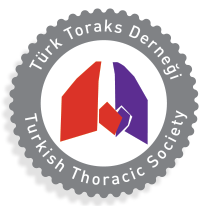Abstract
Objective: The aim of this study was to determine the effects of identification of the pathogens and specific and appropriate treatments, and the success of these treatments for subjects who acquired HAP non-ICU.
Material and Method: The analyzed data was obtained from the records of 154 consecutive HAP patients who acquired pneumonia non-ICU. We investigated whether the factor was identified, whether patients received a specific therapy according to the results of a culture antibiogram, and whether the patients received appropriate antibiotics therapy initially.
Results: When the groups treated specifically (n=78) and empirically (n=76) were compared, there were no significant differences between the clinical success rates. The difference was not significant between the group given an appropriate antibiotherapy initially (n=42) and the group whose initial therapy was changed according to the culture antibiogram after the factor was found (n=36). When the group given appropriate initial antibiotherapy (n=42) was compared with all the other patients (n=112), the difference between the clinical success rates was not significant. The most remarkable result of the study was the success rate being significantly higher in the group in which the pathogen could not be identified (n=66) compared with the group in (n=88) which the pathogen was identified (p=0.022).
Conclusion: The clinical success rate was low in microorganism-caused HAPs with a potential for drug resistance and having the characteristic of developing rapid resistance, such as Acinetobacter spp. and Pseudomonas spp, even though specific treatment was administered. These results indicate that the prevention of infections that occur with such microorganisms is more important than the treatment. (Tur Toraks Der 2010; 11: 155-9)



.png)
